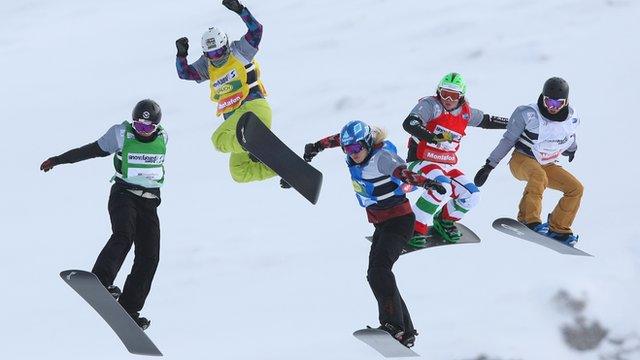Sochi 2014: How a summer office job helped Lizzy Yarnold's dream
- Published
Yarnold's skeleton hopes and fears
Lizzy Yarnold is embarrassed to admit she did not even know what skeleton was when she was selected to try the winter sport at a talent identification day.
Six years on, she is an Olympic champion, becoming Great Britain's 10th Winter Olympic gold medallist.
Her coaches are proud of her achievements and speak of the 25-year-old's talent in glowing terms.
"She's a diamond, there's no question," said performance director Nigel Laughton.
"They only come around occasionally - once in a generation. She has everything, all of the skill-set that you need and she's a pleasure to work with."
British Winter Olympic success is as rare as a snowball in summer - as a tally of 24 medals in 22 Games so far attests - but Britons do excel at skeleton, where sliders hurtle head-first down an ice track on a sled at speeds in excess of 80mph.
The event has been included in six Winter Games - in 1928, 1960, 2002, 2006, 2010 and now 2014.
And at each of those Games a Briton has reached the podium, with the nation standing second in an all-time medal table behind the traditional winter sport powerhouse of the United States.
In Vancouver four years ago, it was Amy Williams's turn as she became Team GB's first skeleton gold medallist when she won the Olympic title.
And medal success has happened again, at the Sanki Sliding Centre in the mountains above Sochi.
Yarnold's sporting path to glory was changed forever when she attended a UK Sport Girls4Gold initiative,, external where highly competitive sportswomen were chosen for specific sports if they showed the attributes to become a potential Olympic champion.
Yarnold was a promising athlete at school in Kent, excelling at heptathlon, and enjoyed horse riding and diving. But she admitted to BBC Sport: "At the Girls4Gold selection, I desperately wanted to be picked for modern pentathlon. But they said I'd be more suited to skeleton instead. I must admit I'd never heard of it but I've never looked back since."
Out of 1,500 who attended, 120 were initially selected for skeleton. It was reduced to 50, 20 and then 10 and Yarnold had to attend what she described as an "X Factor-style" selection process in Lillehammer, Norway.
It was her first time on an ice track and she described it as "petrifying, so different to anything I'd ever experienced".
She stuck at it, combining her fledgling skeleton career with studying for a degree in sports psychology. During her summer holidays in 2009, a placement at insurance underwriters Hardy in London proved a turning point.
At the time, Yarnold was saving up £176 to buy a custom-made bag for the runners on her sled. She put a jar in the kitchen at Hardy, hoping to get a few donations.
But Mervyn Sugden, one of the senior underwriters, took an avid interest in her sport and stumped up the cash she needed there and then.
"I was really struggling for money. I was barely making ends meet and I was training in the mornings and evenings in between working," she said.
"I got chatting to Mervyn and told him all about skeleton and my hopes and I couldn't believe it when he gave me the money."
Yarnold named her sled Mervyn in honour of him and stays in contact with Sugden, always making sure she signs off emails from her and her sled.
She took naturally to skeleton, relocating to Bath and living in a flat owned by Williams. She was soon on the podium, winning two Europa Cups, which is the second tier of competition, in 2010 and in 2011 finished second in the Junior World Championships.
In 2012 she moved up to World Cup level - and in only her second race, took gold in St Moritz, won the junior world title and finished third in the senior World Championships.
This season, Yarnold claimed the overall World Cup title after four wins, two silvers and a bronze medal in eight races.
And now she has the Olympic title as well.
"I'm just so chuffed I'm Olympic champion," she said.
"As an athlete you do so much hard work, but it's worth it for days like this."
Great Britain have been able to compete with the top international skeleton nations through careful talent identification, cutting-edge sled technology and the backing of UK Sport, which invested £3.5m in the four-year run-up to Sochi.
But it also takes guts and talent. Yarnold, who chose her final degree dissertation in mental toughness, has both - and left nothing to chance in her preparation.
"The mental state I put myself into is quite a relaxed state," she said.
"I know exactly what I need to achieve in every minute of that warm-up. I know exactly what I am going to be doing in that lead-up to get my body physically and mentally completely prepared for that one-minute run."
- Published14 February 2014
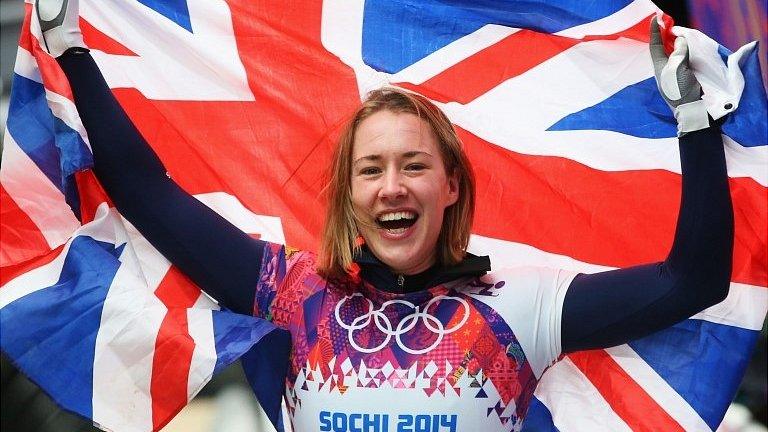
- Published14 February 2014
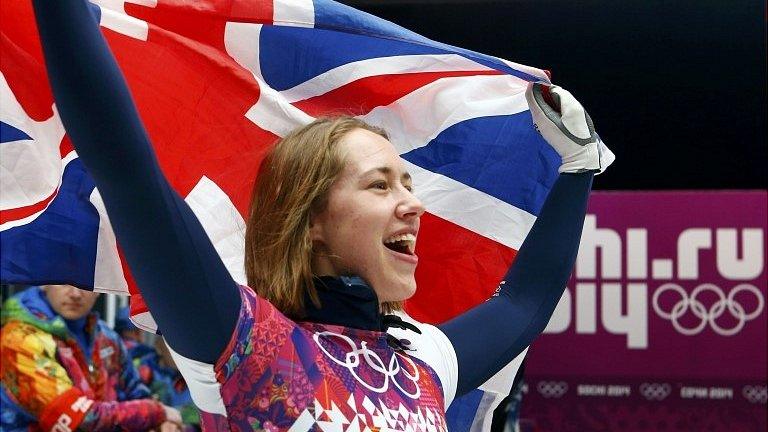
- Published24 January 2014
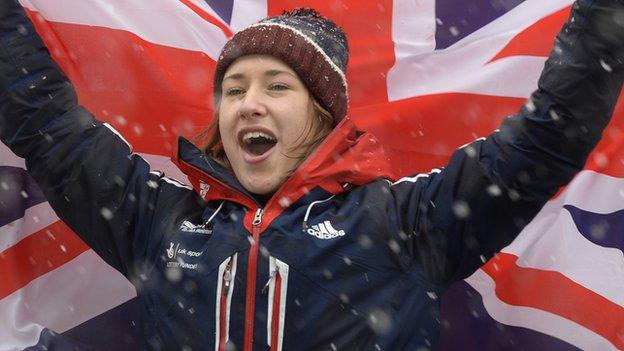
- Published21 January 2014
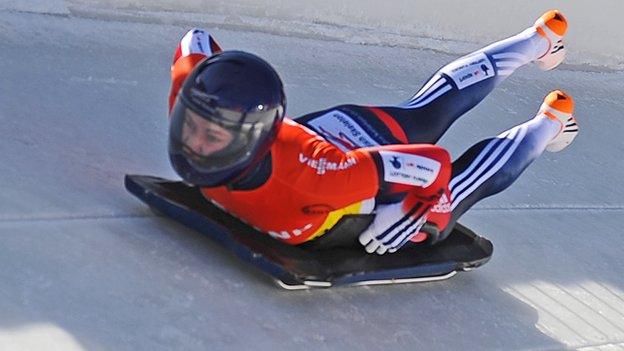
- Published31 January 2014
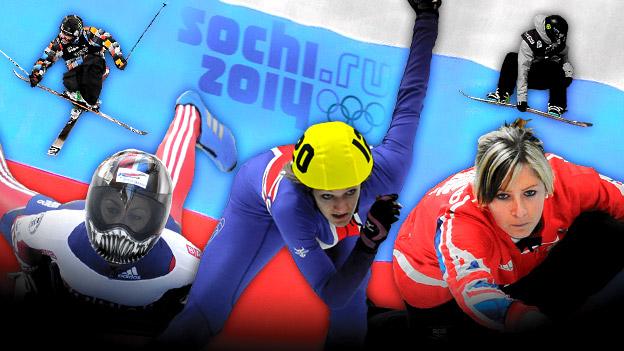
- Published22 January 2014
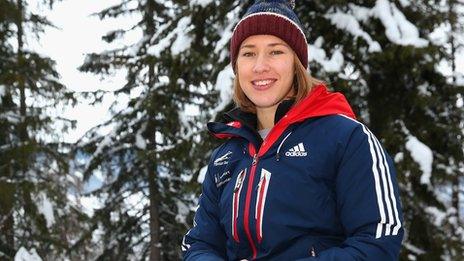
- Published10 January 2014
